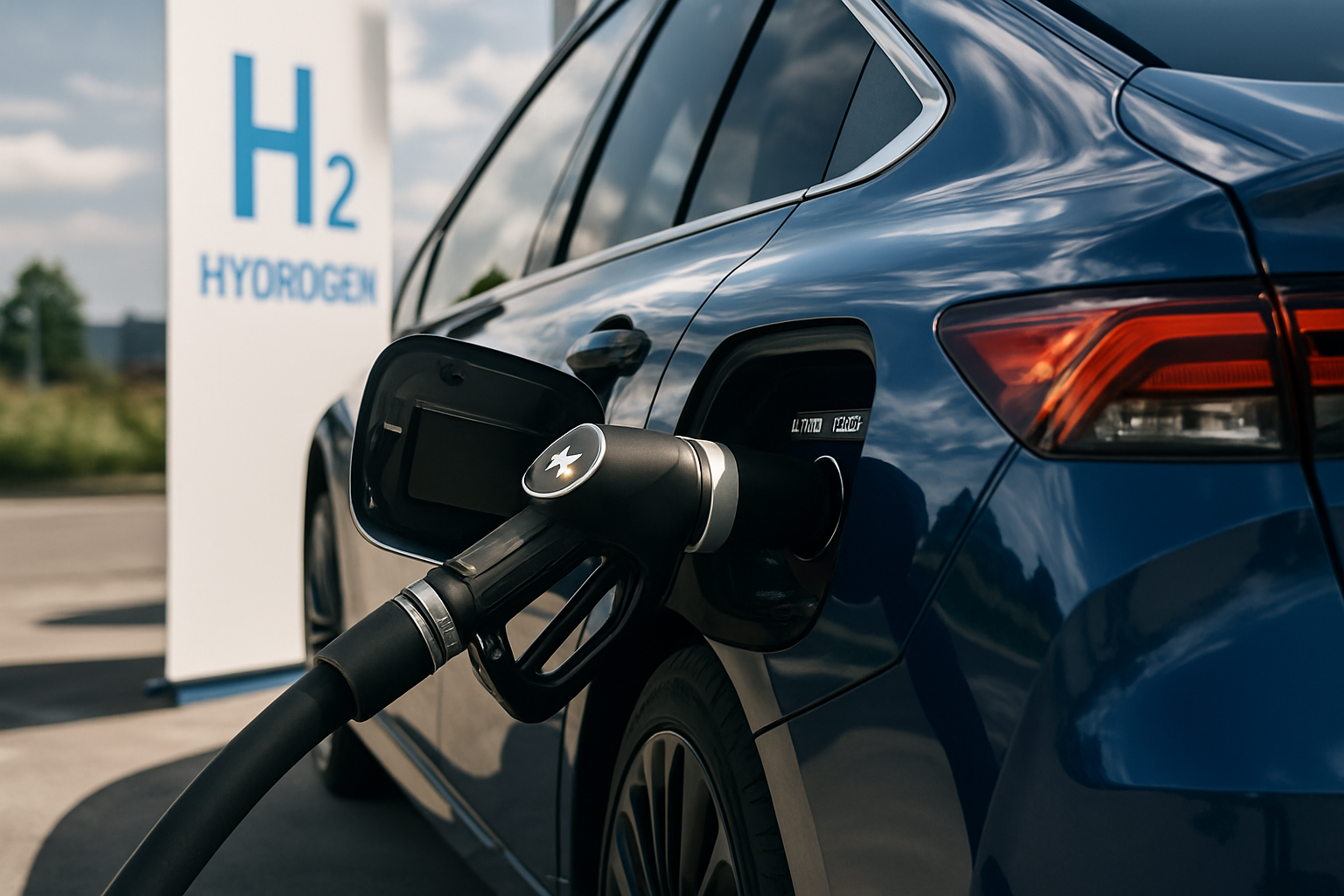Hydrogen Fuel Cells: The Silent Revolution in Automotive Propulsion
In the ever-evolving landscape of automotive technology, hydrogen fuel cells are emerging as a groundbreaking alternative to traditional combustion engines. This innovative propulsion system promises zero-emission vehicles with the convenience of quick refueling times, potentially reshaping the future of transportation. As automakers and governments worldwide invest heavily in this technology, we delve into the intricacies of hydrogen fuel cells, exploring their potential to revolutionize the automotive industry and address pressing environmental concerns.

A Brief History of Hydrogen in Automobiles
The concept of using hydrogen as a fuel source dates back to the early 19th century, with Sir William Grove’s creation of the first fuel cell in 1839. However, it wasn’t until the mid-20th century that NASA’s space program brought fuel cells into the spotlight, using them to power spacecraft. The automotive industry began serious exploration of hydrogen fuel cells in the 1990s, with major manufacturers like General Motors, Honda, and Toyota investing in research and development.
Current State of Hydrogen Fuel Cell Vehicles
Today, several automakers offer hydrogen fuel cell vehicles (FCVs) in select markets. The Toyota Mirai, Honda Clarity Fuel Cell, and Hyundai NEXO are among the most prominent examples. These vehicles boast impressive range capabilities, often exceeding 300 miles on a single tank of hydrogen. Refueling takes mere minutes, addressing one of the primary concerns associated with battery electric vehicles.
Infrastructure Challenges and Solutions
One of the most significant hurdles facing widespread adoption of hydrogen fuel cell vehicles is the lack of refueling infrastructure. Unlike the electrical grid, which is ubiquitous, hydrogen fueling stations are scarce. However, countries like Japan, Germany, and South Korea are making substantial investments in hydrogen infrastructure. In the United States, California leads the way with over 40 operational hydrogen stations and plans for expansion.
Environmental Impact and Sustainability
While hydrogen fuel cells produce zero tailpipe emissions, the environmental impact of hydrogen production is a critical consideration. Currently, most hydrogen is produced through steam methane reforming, a process that relies on natural gas and generates carbon dioxide. However, the industry is shifting towards greener production methods, such as electrolysis powered by renewable energy sources. This “green hydrogen” has the potential to make fuel cell vehicles truly zero-emission from well to wheel.
Cost Considerations and Market Viability
The high cost of fuel cell systems and expensive platinum catalysts have historically been major barriers to widespread adoption. However, technological advancements and economies of scale are gradually reducing costs. Toyota, for instance, has reported a 95% reduction in the cost of fuel cell production since the introduction of its first-generation system. As production volumes increase and technology matures, hydrogen fuel cell vehicles are expected to become more cost-competitive with conventional and battery electric vehicles.
The Role of Hydrogen in Heavy-Duty Transportation
While passenger vehicles have been the initial focus of hydrogen fuel cell technology, the heavy-duty transportation sector presents a compelling use case. Long-haul trucks, buses, and trains benefit from the quick refueling times and long range offered by fuel cells. Several manufacturers, including Nikola Motors and Hyundai, are developing hydrogen-powered trucks, while countries like Germany and Japan are already operating hydrogen fuel cell trains.
Future Prospects and Industry Outlook
The future of hydrogen fuel cells in the automotive industry looks promising, with increasing investment from both private and public sectors. The Hydrogen Council, a global initiative of leading energy, transport, and industry companies, projects that hydrogen could power up to 400 million passenger vehicles by 2050. As technology advances and infrastructure expands, we can expect to see a more diverse range of hydrogen-powered vehicles on our roads, from compact city cars to long-haul trucks.
In conclusion, hydrogen fuel cell technology represents a compelling vision for the future of sustainable transportation. While challenges remain, particularly in infrastructure development and cost reduction, the potential benefits of this technology are immense. As the automotive industry continues to evolve in response to environmental concerns and energy security issues, hydrogen fuel cells are poised to play a significant role in shaping the vehicles of tomorrow, offering a clean, efficient, and versatile alternative to traditional propulsion systems.






